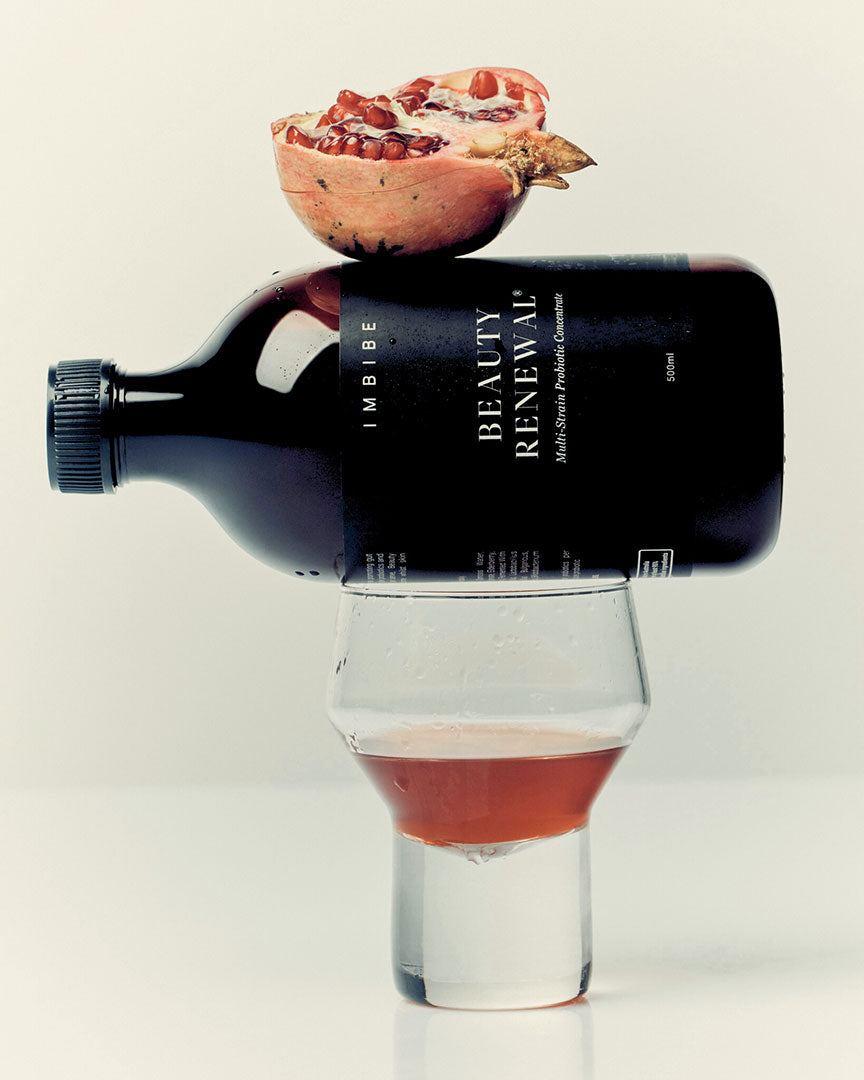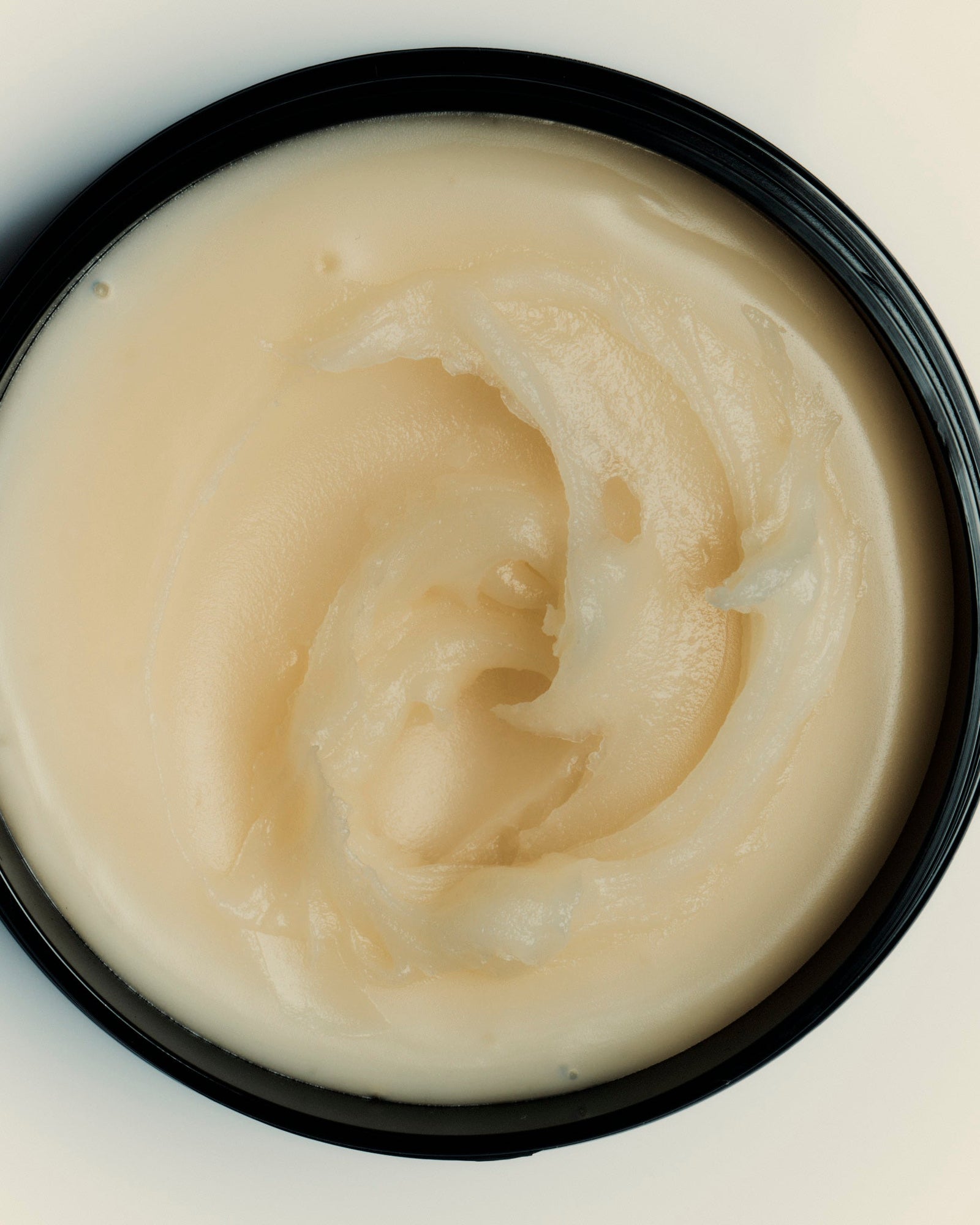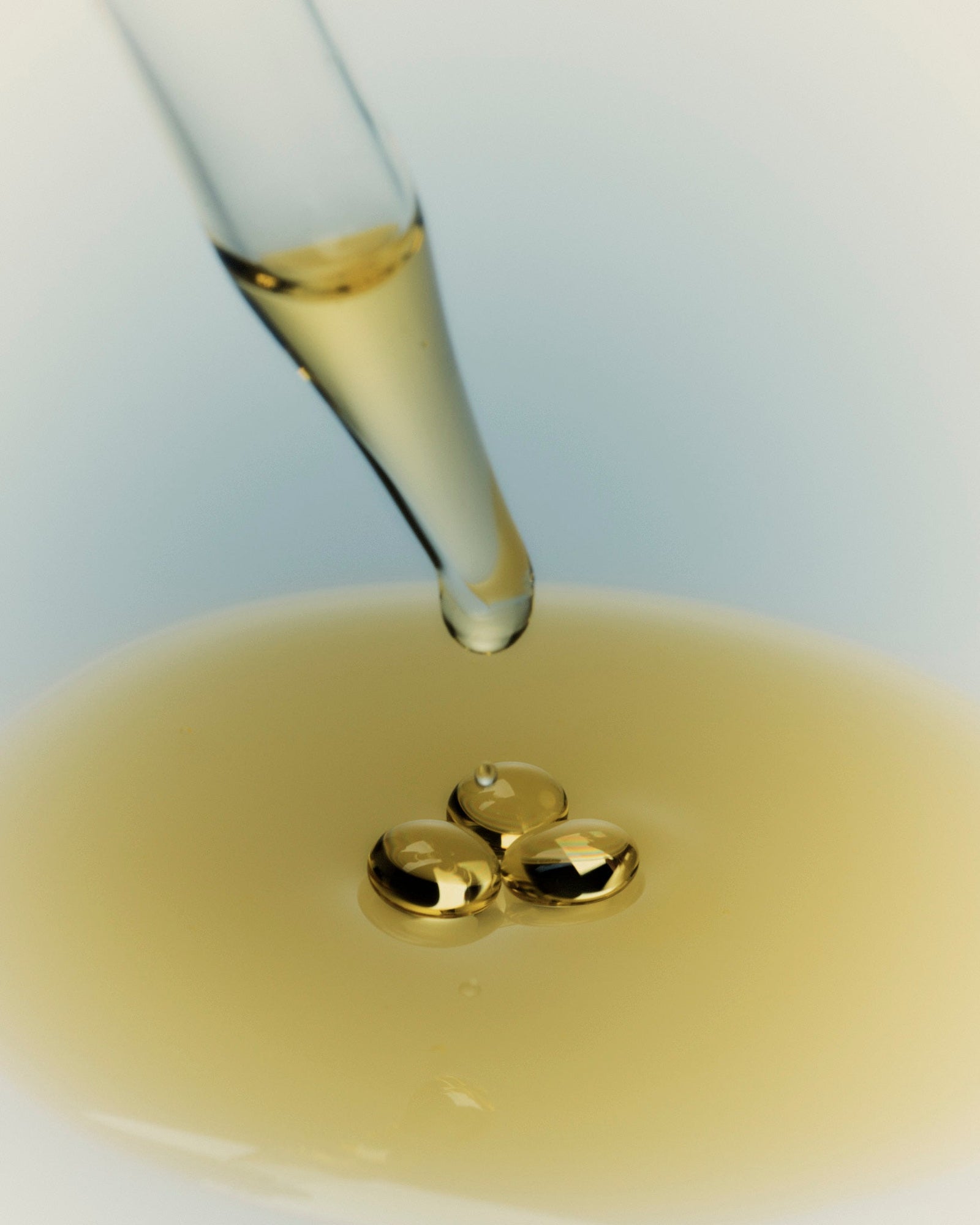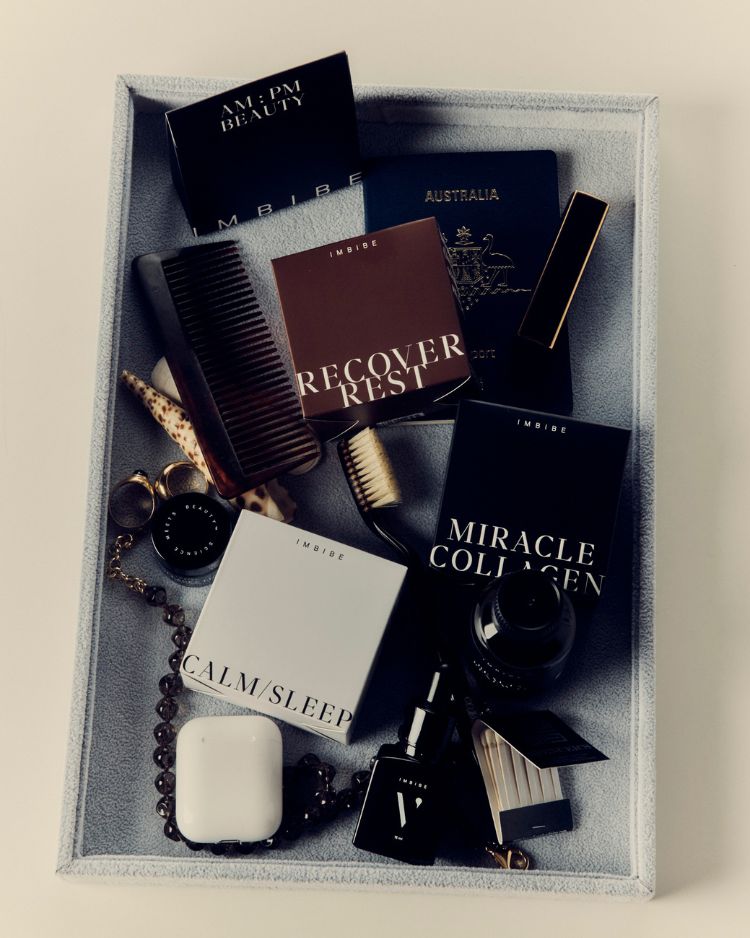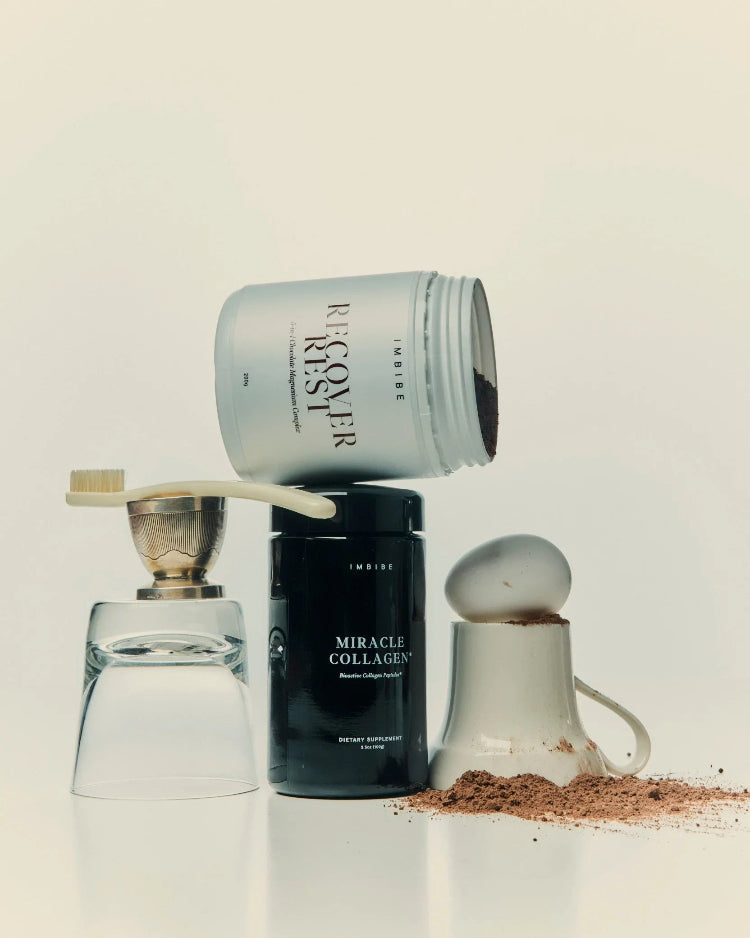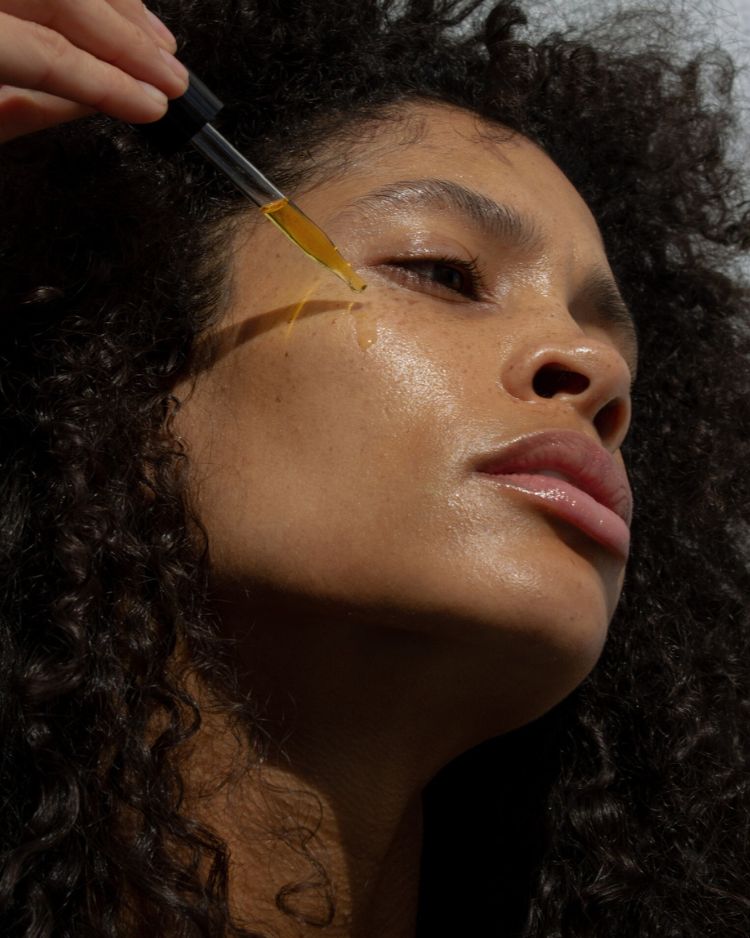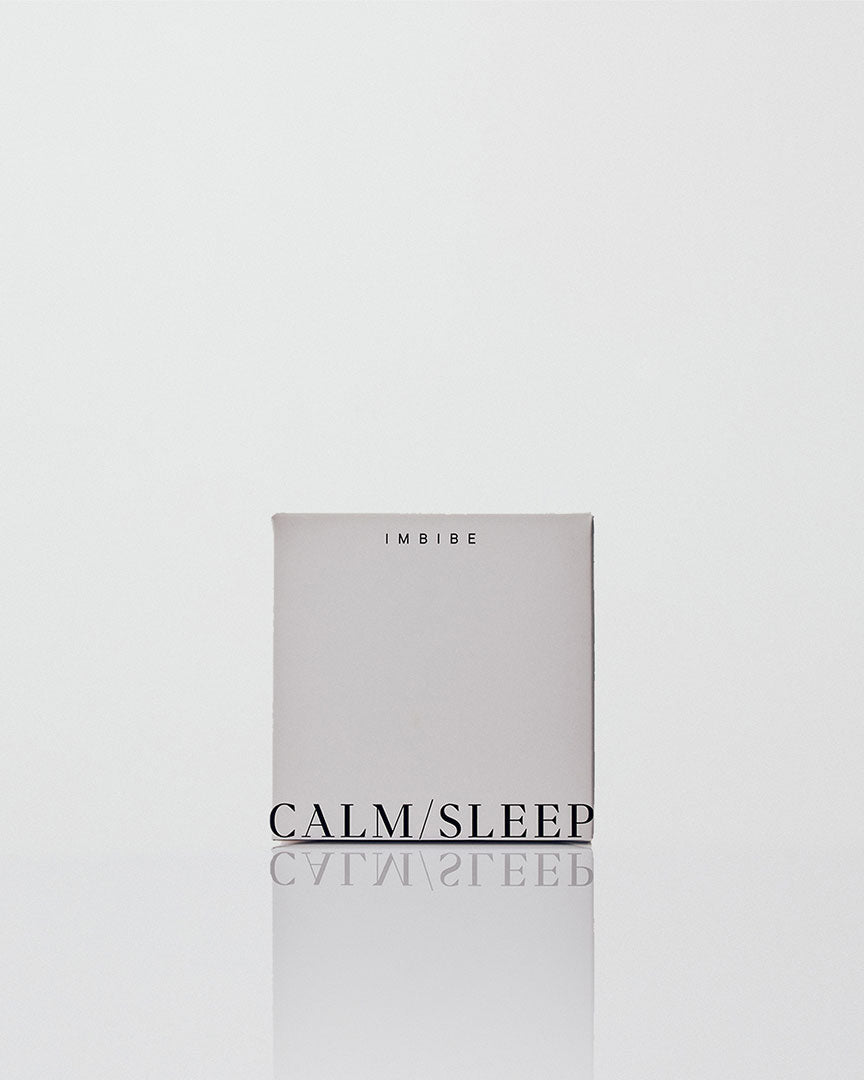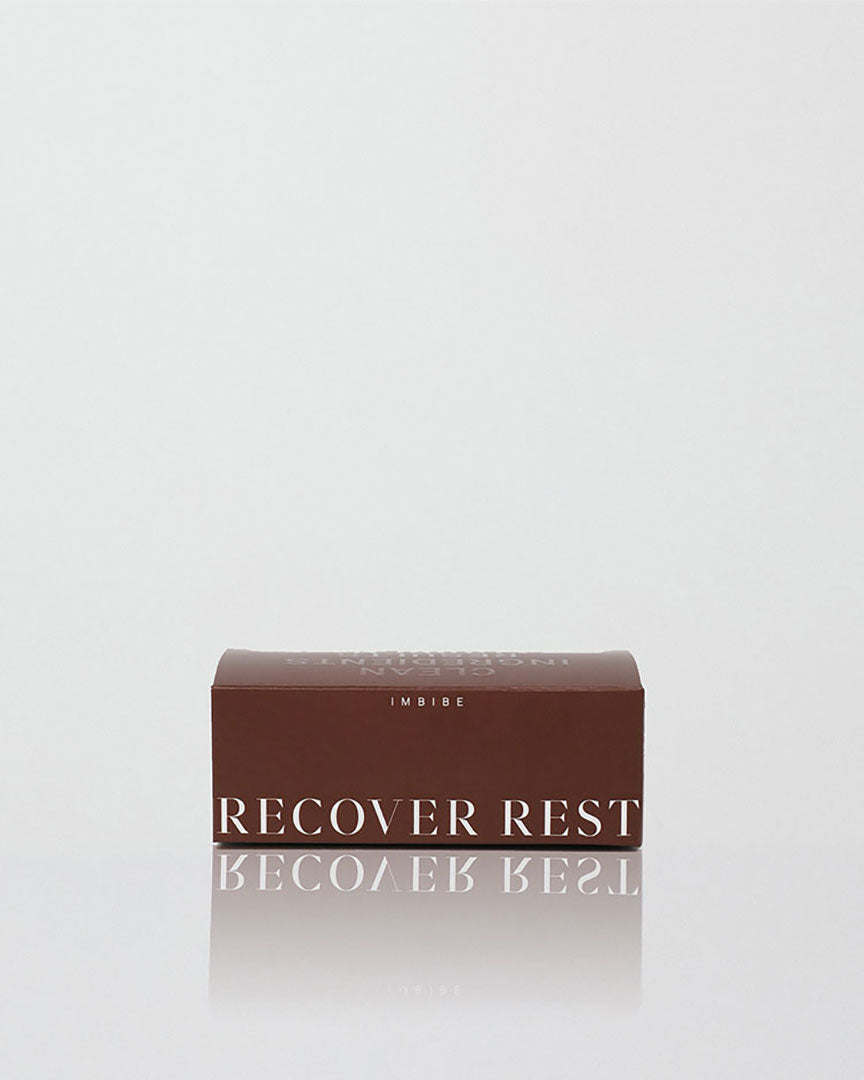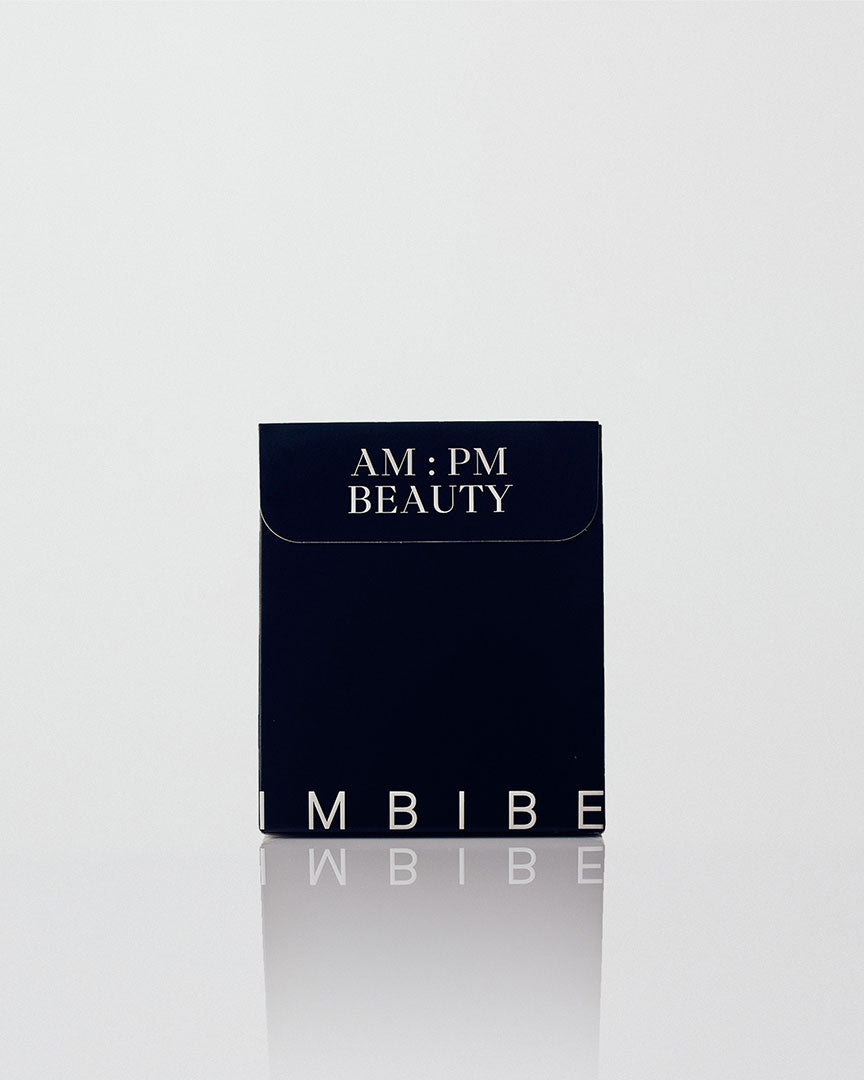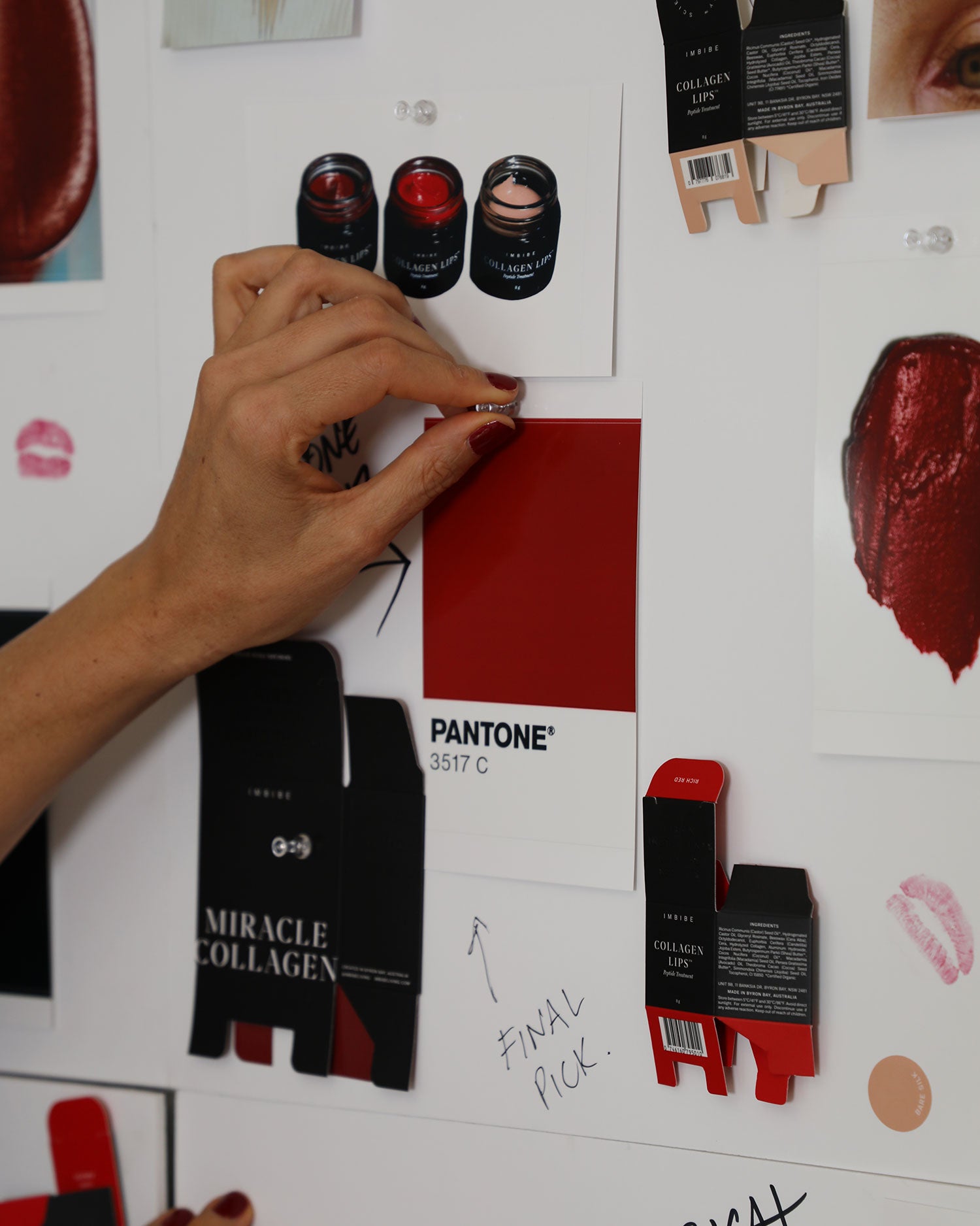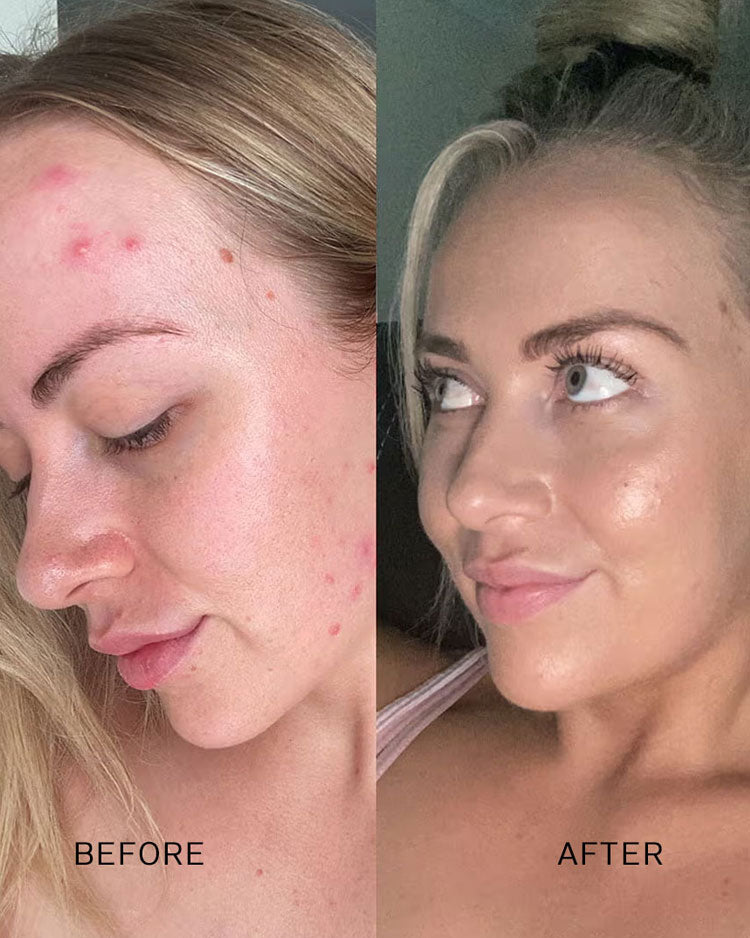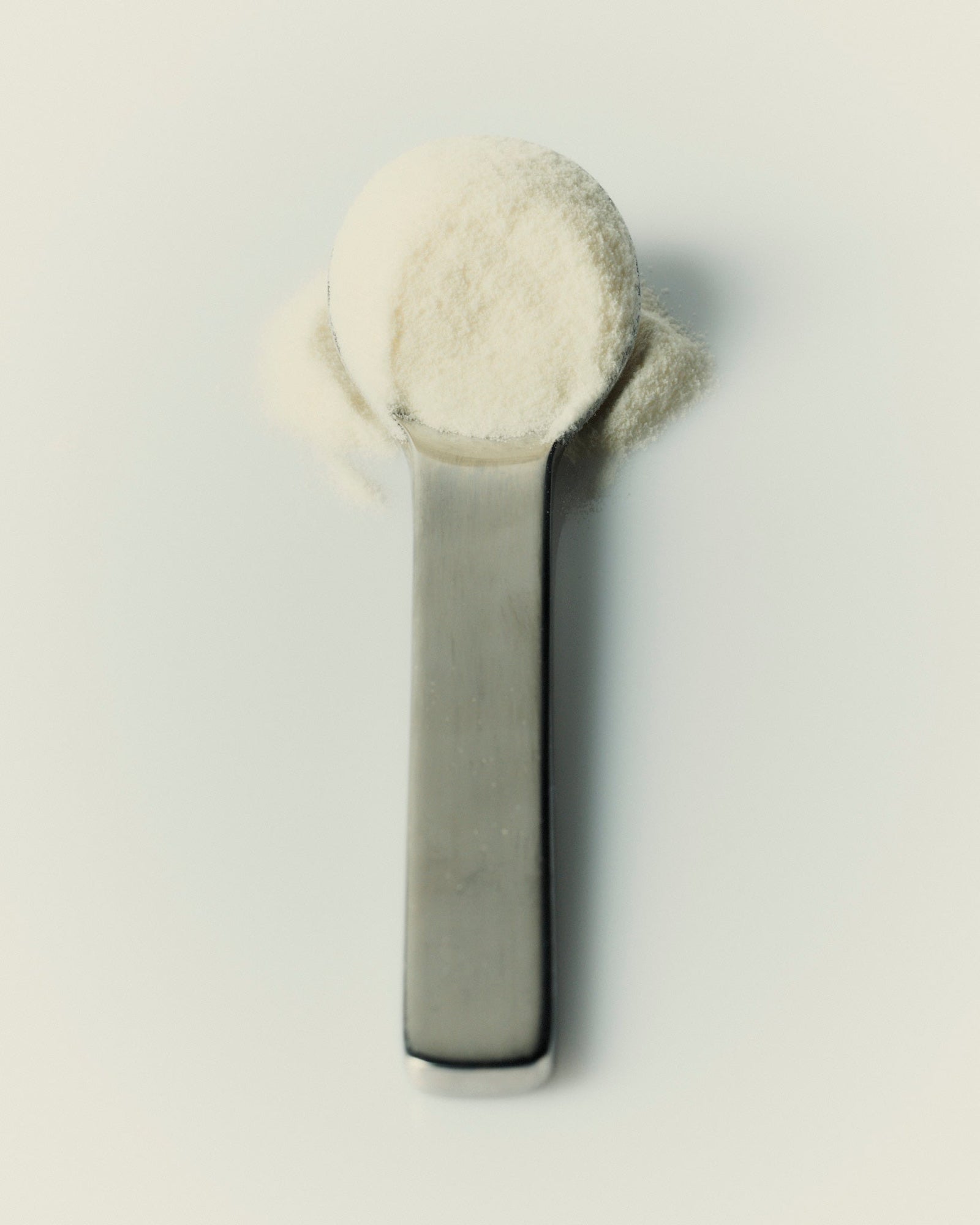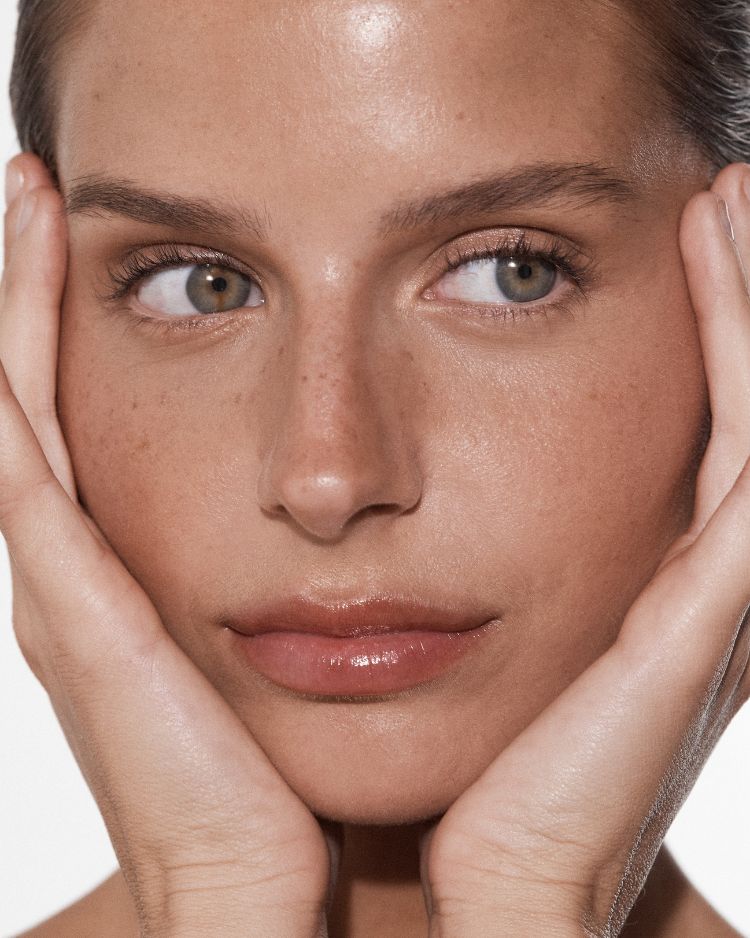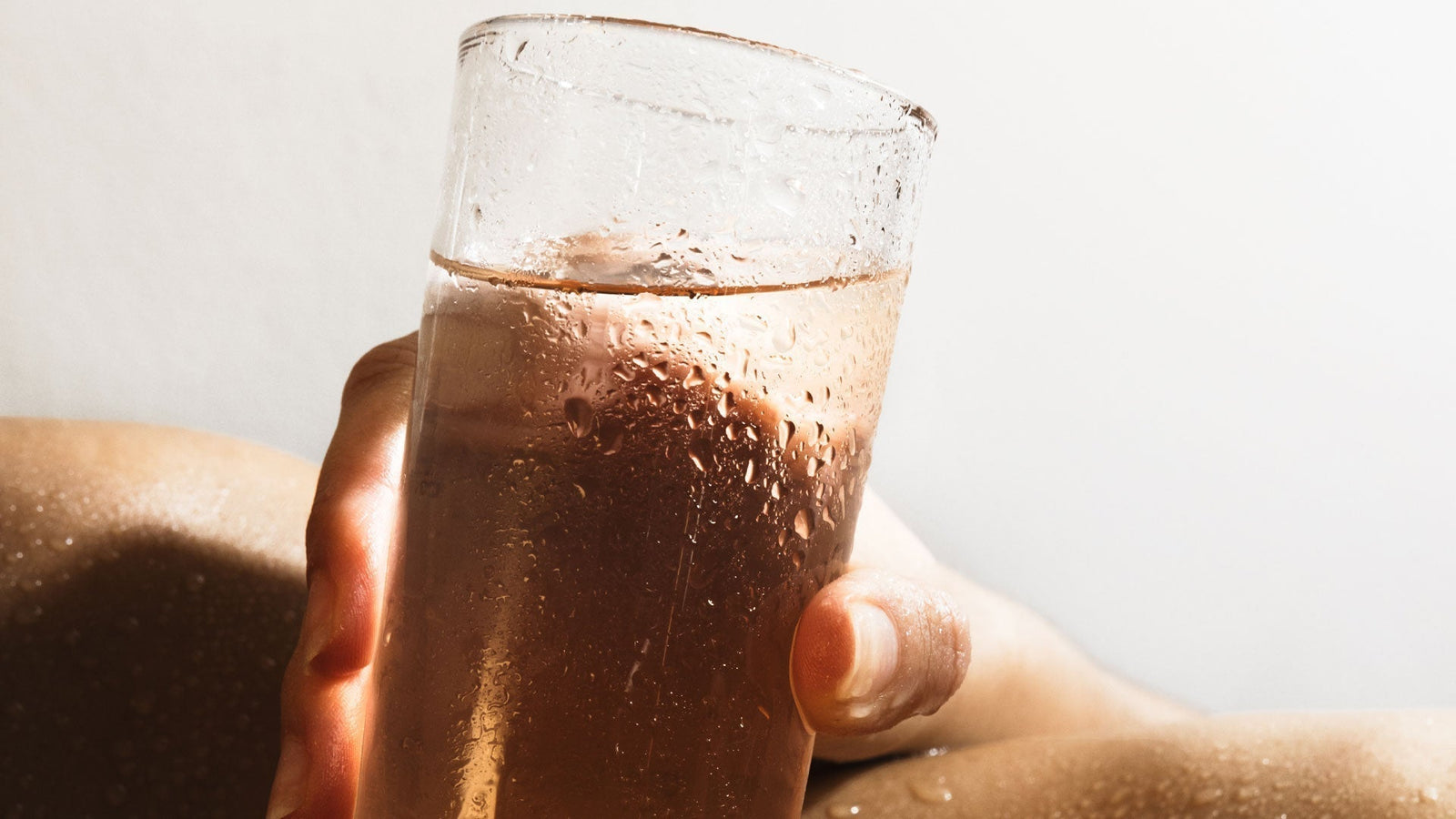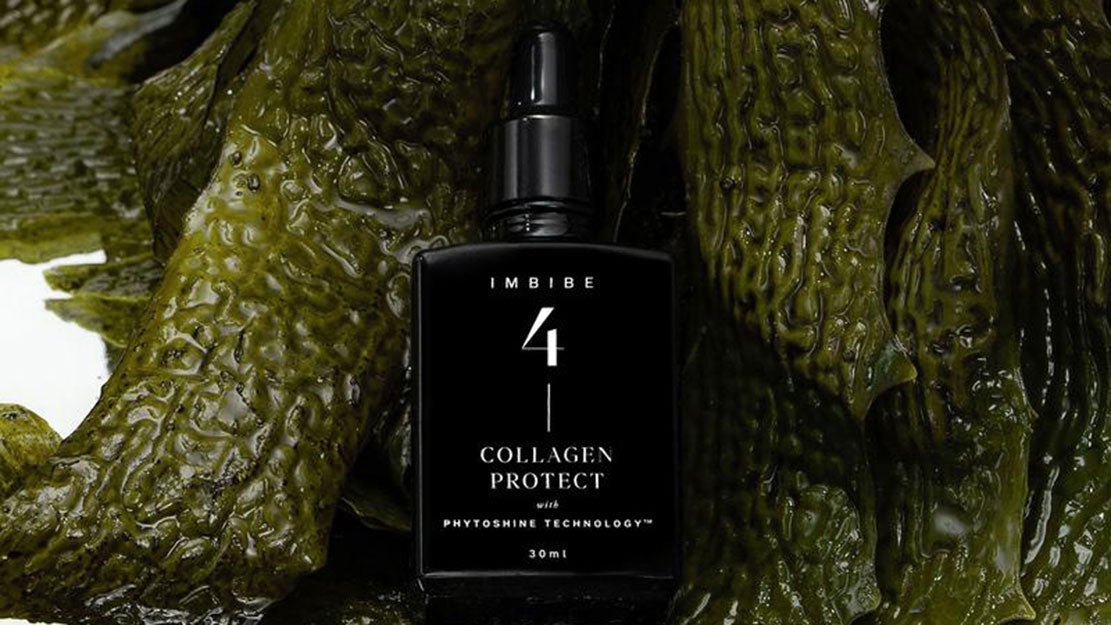
TLDR; most skincare contains around 90-95% water (also called other exotic sounding names like Aqua or Eau) and is packed with bulking agents and smoothing ingredients that add volume to the product and crowd out any actives, giving the illusion of potency and value.
If you know us, you know that we’re all about actives, quality and efficacy. That’s why we don’t use water or bulking agents in any of our products.
Nourishing your body by drinking at least two (we try and aim for three) litres of water a day, will help your skin come to life, your organs to thrive, your blood to flow and your brain to function - it truly is the key to a youthful, luminous complexion. But we’re here to tell you, it’s strictly an inside job.
Up to 60% of our bodies are made of water and so it should make sense that up to 80% of your current skincare is too, right? Wrong. When it comes to water and beauty, the buck should really stop with internal use.
That’s why, when formulating our clean skincare range, Skin Science, we went waterless. Need to know more? Here’s the scoop on the top three reasons you should be embracing waterless technology in 2021 and giving the boot to anything less (like we will be giving, happily, to 2020):
Up to 60% of our bodies are made of water and so it should make sense that up to 80% of your current skincare is too, right? Wrong.
01. Efficacy/Concentration
If you check out the label on any one of your current skin care products (go on, we dare you), you may notice that ‘aqua’ is at the top of the list. This means that the primary ingredient is water, as ingredients are listed from most concentrated to least.
Being a largely inactive ingredient, water acts as a dilutant and an inexpensive filler for the concentrated, active ingredients found in quality skincare formulations. What’s particularly concerning about water as a primary ingredient in skincare is that our skin is what we call hydrophobic, meaning that it’s difficult to wet and can’t absorb water effectively, so when water is added to skincare, it not only dilutes formulations, but can also prevent your skin from absorbing the active ingredients your skin needs (and your purse is paying for).
What’s more? The outermost layers of our skin are actually lipophilic, meaning that active ingredients will absorb best into skin when carried by lipids or oils - this is where ‘Anhydrous’ or waterless skincare rich in oils, comes to the fore.
Naturally, almost every ingredient, including botanical oils and plant derived actives, contain some level of water content.
But by avoiding added water, these ingredients maintain their integrity, efficacy and potency without any unnecessary additives. This means that the active ingredients in waterless skincare products like our Collagen Protect Oil Serum, are more potent, more concentrated, deliver better results, and *hallelujah* go easier on your wallet in the long run.
02. Microbial Protection
Now, on to our most beloved topic - the microbiome and microbial balance.
The need for microbial balance in your body is not just confined to your gut - your skin has a microbial environment of its very own to maintain.
Generally, this environment is self-regulating. Your skin’s own oils, coupled with naturally occurring bacteria, create a moisture barrier that protects and nourishes your skin.
Now, as you may remember from school, or your latest salad dressing DIY - oil and water naturally repel each other, they don’t mix. This means that when too much water is added to the skin’s microbial environment, it will repel your own natural oils and disrupt your natural balance.
Additionally, water evaporates and when used in skincare, evaporates from your face, taking everything else, including all of your skin's beautiful, healthy oils with it (a hard no from us).
In addition to using waterless oils and hydrating serums, to help maintain the natural harmony within your skin’s microbiome, we recommend feeding it topically applied, plant based probiotics (like the ones we feed our gut with Beauty Renewal) which can be found in Lift, our refining mist.
The need for microbial balance in your body is not just confined to your gut - your skin has a microbial environment of its very own to maintain.
03. Natural Longevity
We’re not just here for a good time - we’re here for the long haul (and so is our range).
But we’re doing it without the need for preservatives, synthetics and stabilizers traditionally used in beauty products to fight against bacteria; all possible because we went waterless.
As a general rule, bacteria and mold both need water to flourish, effectively meaning that the water in your skincare could actually be a cause for problems.
In other words? Less added water means greater product stability by reducing the potential for microbial and bacterial contamination, thus increasing the purity and longevity of your products.
Using waterless products with a longer shelf life has a number of sustainable benefits as well:
1. your products last longer, lowering your waste, consumption and contribution to the staggering plastic waste on our planet.
2. going water-free with your skin care acts as a small step in preserving this vital and diminishing natural resource.
The moral of the story?
Keep it simple.
Keep it clean.
Keep it concentrated.
Keep it waterless.
This blog is based purely on the author's personal experience. It is not intended to be a substitute for medical advice or treatment. The author is neither a medical nor health professional and cannot guarantee that the information in this blog post is accurate, reliable or complete. If you use this information, you do so at your own risk and should consult a qualified medical or health practitioner before relying on any information contained in this blog.

